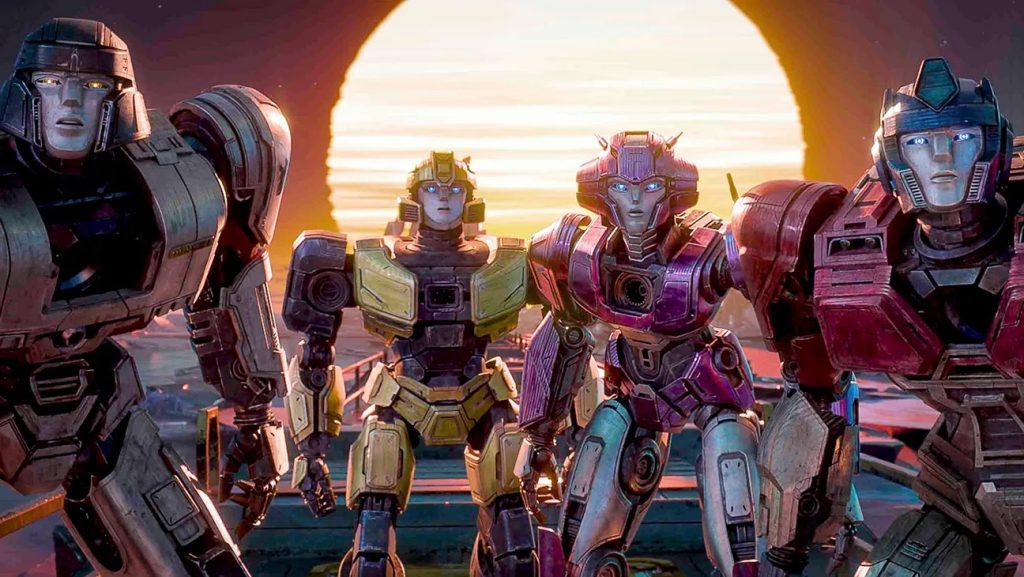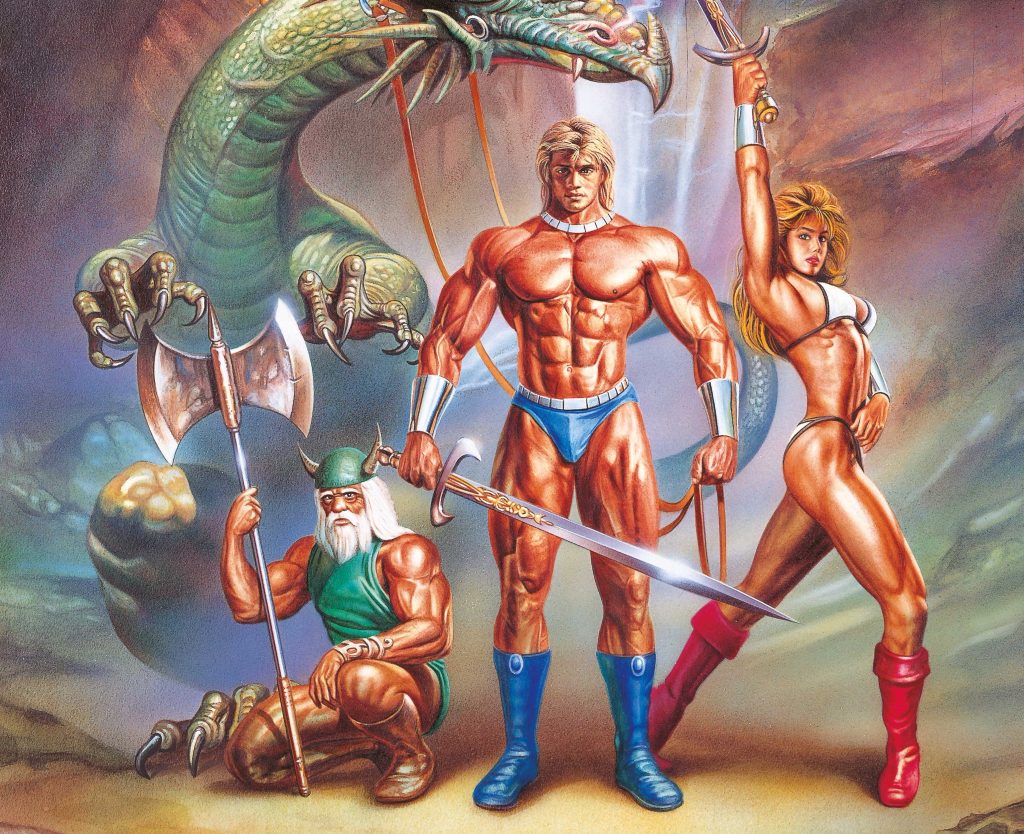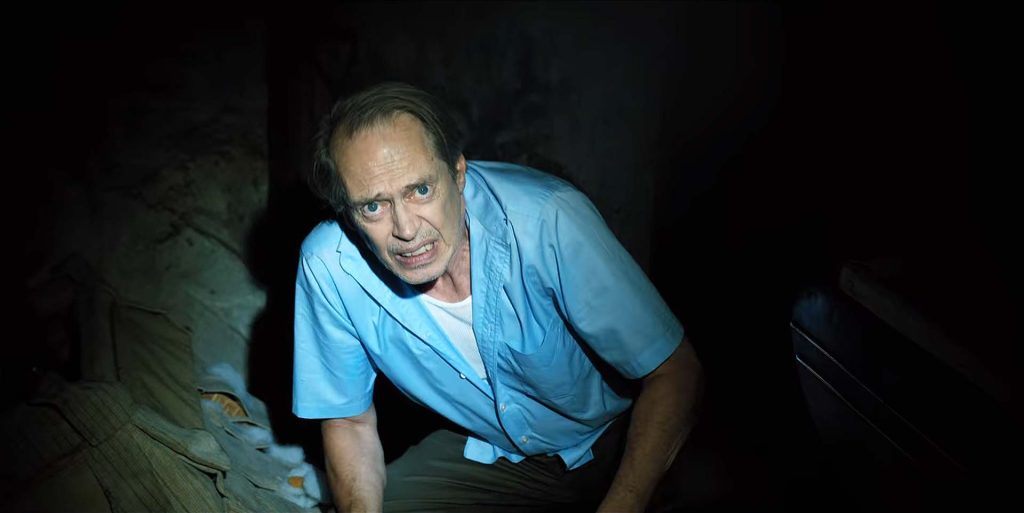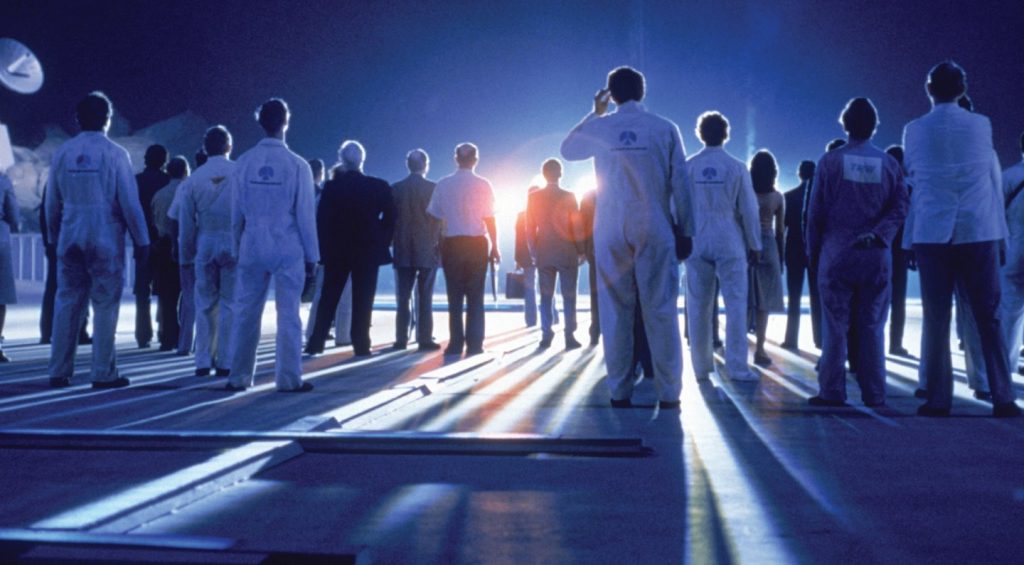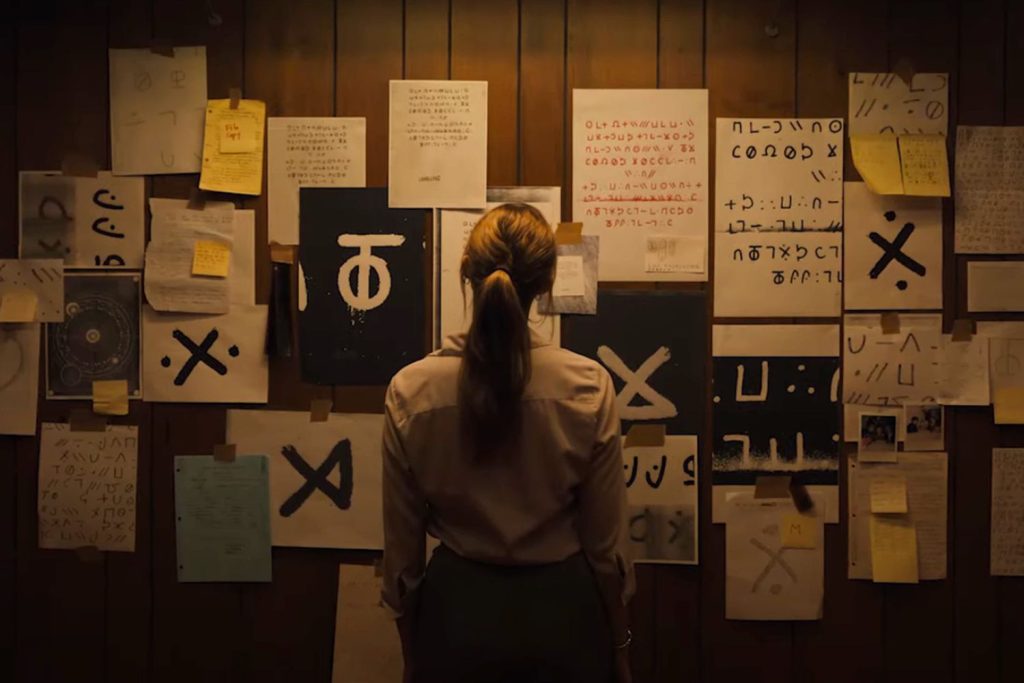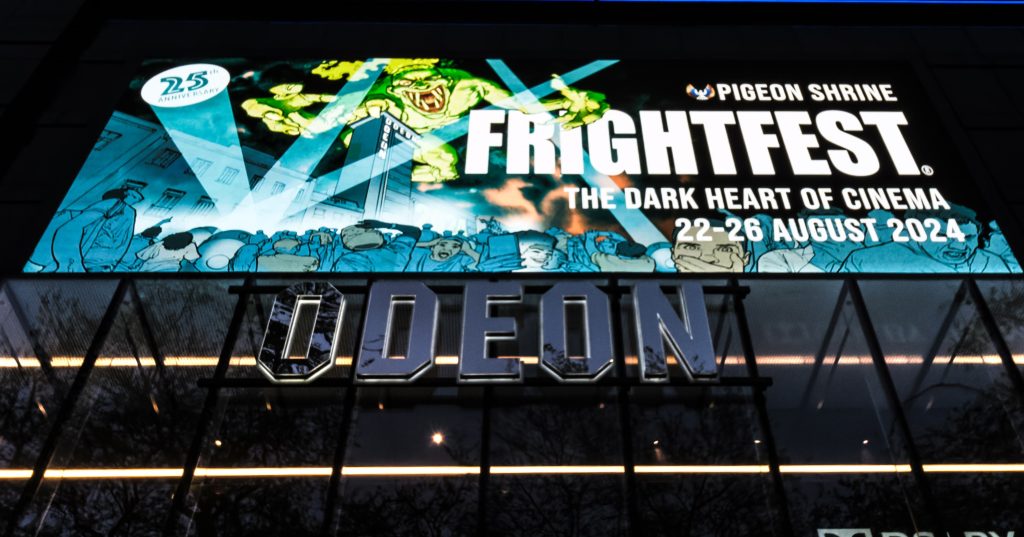Joe Abercrombie has been described as the Lord of Grim Dark fiction; His iconic First Law trilogy set the tone for darker fantasy novels and his award-winning, wildly popular work has been lauded across the world for it’s gritty sensibility and entertaning style. His latest book, The Wisdom of Crowds, completes the Age of Madness trilogy, the latest series of books set in the world of First Law. You can read an extract of it here. We caught up with him whilst he was on tour promoting the book to find out more.
Starburst: The Wisdom of crowds is the final bit of the age of madness. How would you introduce it to someone new to your work?
Joe Abercrombie: Well, it’s an epic fantasy, I suppose is one way of putting it. It’s a huge sweep of love and war. It’s a time of change. It’s a kind of fantasy that’s influenced by the industrial revolution very much. So it takes place in a in a rapidly changing world where money and industry are becoming the new powers. And this kind of new breed of investor and inventor who is taking the place of the old ways of magic and superstition up to a point.
Something like that. It’s a big story with lots of characters, and you know, it kind of follows my same, you know, the same approach to found itself used in the past, which is really a focus on the characters, on the on the action, on sort of rich vein of dark humor and a subtle, cynical revisionist approach to the material, I guess.
Starburst: It’s a follow-on of sorts from the First Law books. Why did you decide to put that world through the industrial revolution?
Joe Abercrombie: I think I’ve always been a bit frustrated by the way the fantasy world seemed kind of pickled in vinegar.
They seem like they’re worlds that don’t change these medieval sandboxes where you’ve had knights and wizards for thousands of years and things are in a kind of an artificial status. I don’t feel very real. You know, the conflicts, the great wars that they focus on are, you know, sometimes seem to grow out of these battles between good and evil. Dome sort of abstract idea of good and evil.
Whereas in the real world conflicts and wars grow out of these big tectonic shifts in culture and economics and technology. And I want us to try and have a world that reflected that, that felt like it was moving and shifting and endlessly changing despite the best efforts of the wizards and kings who would like to keep things as they are. So in the First Law, you know, although it was a slightly more medieval or Renaissance feel that these books, it was nonetheless a time of the kind of growth of the merchant class where money and commerce becoming the new power that was eclipsing kind of traditional aristocratic feudal power.
And so the natural next step, but the next big kind of social eruption was the Industrial Revolution.I felt it was a natural way to go, but an early industrial revolution, more water wheels and steam trains.
Just naturally, a lot of low-key drama flows out of that setting. The contrast between rich and poor, the conflict between new and old. So natural tension continues between various different strata of society and therefore the different characters who come from those different parts.
Starburst: This series is written with multiple Points of View from various characters. Why that approach, and why do you torture them so much?
Joe: Well, I’ll talk to them so much, because that’s obviously how you talk to the reader, through the characters and their attachment to the characters, that’s how you get the emotions of the reader.
As a reader I want to be shocked and to feel things. And so, you know, if the characters skate through, if you don’t have any fear for the characters, if you don’t have any attachment to the characters, you can’t get that effect on the reader, which is which is what you’re going for.
Where do they come from? They’re sort designed at the start of the process, when I’m planning. You know, what do I need in my cast, to do to tell the story. I wrote books with a very male cast, originally. And so over time, I’ve tried to have a kind of more diverse cast in terms of, you know, gender and a range of ages and types and backgrounds.
So there are seven central points of view now. Three of them are women. Some are from very low in the social pecking order, some from very high. One is a kind of a ruthless socialite business woman which is the sort character you don’t often see in fantasy. You know, whereas there’s also a young warrior who is in a way very much the classic sort character you’d expect to see, but hopefully a a slightly different take on that archetype.
I select a range. I mean, it’s also a well-established world that’s been around a while, so there’s a lot of baggage. There are a lot of old characters about, you know, came through earlier books and so many of the characters in this series of children, all kind of proteges of the older generation.
So naturally, they take on some of the characteristics of those people that came before. And that was quite an interesting aspect to this for me was, you know, how the new generation would reflect some of the characteristics, if not all of the old. But a lot of it is just simply what happens when you sit down to write, you know, until you until you really start writing for the from a character’s point of view, I find you don’t really understand what they’re like, what works, how they relate to other characters.
When you start writing that hopefully the magic happens and they start to really take on a personality and a voice generally are ironic, quite neutral way originally. Initially they’re all relatively similar. And then over time, their voices kind of define a little bit. I got to work out what works for them. What approaches to the writing might make them feel distinct and individual, and the aim is always to try and get the prose, and the writing feel is reflective of their personality as I can, so that hopefully every point of view feels nice and distinct in the way that it reads.
Starburst: The pacing is quite steady throughout in your work; it’s very smoothly done and it’s always a pleasure to read; what’s your process, how do we get from the first draft to the very polished final product?
Joe: I mean, it’s developed over time, I think, and I’ve certainly got better at it. My first book was notorious for not much happening and being a bit of a character study without an obvious plot. And I think over time, I’ve got better at that pace.
The first thing I’ll do, I guess, is break a project down into parts. So for me the whole trilogy is nine different parts. Each book being broken into three and then to try and give each of those three parts, you know, a structure of its own so that there’s some big event happening that goes in some of the characters and other small dramas.
And perhaps for one character there is, that big climax halfway through. So there is always generally something big going on somewhere. You know, it can be the focus of a section while other things might be building up in another area. So I’m kind of on the on the big scale trying to plan it so that there’s always you’re always building up to something or coming down to something else. You’re not just sitting there turning the wheels, you know?
And then when it comes to kind of writing in each chapter, I suppose I’m again trying to give it up to some level of shape and some level of forward motion out of it. Adam Neville the horror write said that “he aims for life and death on every page.” And that was a bit high concept for me. But a slap in the face on every page has been the lesson I’ve tried to take from it. You know, every page should have something exciting or surprising or a great gag or, you know, a piece of crunch and action. So that, you know, you never look at the page and think, “Oh, this is just getting me from this page to that page.” There’s always hopefully something happening, you know?
And a lot of it again, is revision. You know, for me, I’m not. The writer works a lot in the revision. So I’m always, you know, revising and chiseling away and trying to take anything that’s not essential or make every line that little bit more arresting or better crafted or quicker or sharper.
Starburst: You have a background in of a media, is that has that influenced your revision process or is it a totally different system?
Joe: Yeah, I mean, I was TV editor for a long time. And it’s not the same in many ways, the TV’s are much more group activity, if you like.
But it’s there is also a great deal in common. I think, you know, some of those some of those skills of pacing, of a rhythm of the moment you come into a scene and the moment you get out of what’s essential to show and what you can not show and when you use dialogue and when to use action.
When you use those kind of skills, I think definitely are a lot being added to about, you know, how you pace things and when I can come in and out of things and the value of cutting stuff down and keeping to the essentials.
You know, I’ve watched a lot of producers work on scripts and in scripting for documentary. That is where you’re trying to really reduce to the absolute minimum number of words that the picture’s also certainly learn a lot about trying to boil things down and keep things brief. So vital experience altogether, I think probably.
Starburst: If you were to take one of your works to be converted into a Broadway musical and what work would you pick and what would you expect to be the big scene?
Joe: Oh Heroes, certainly. Because it was a giant story about a three day battle with varied characters ranging from kind of psychopaths to backstabbing cowards to, you know, young boys looking forward, bright eyed to a glorious future.
I think you’d have a nice range of different styles that could be reflected in the in the song. You know, I wanted to have a hip hop approach. One more of a classical musical belting out the tunes.
And of course, one character is cursed with an extremely high voice, which you find very embarrassing for that, too. I think its song could be fascinating and culminate in a giant dance number is the armies clash. I think that would work perfectly. In fact, I may start later on today.
Starburst:
And what would you call it?
Joe:
Well, I don’t know. I’m trying to think of something that has h sound that can make heroes. Maybe just the heroes, huh? Here I was on Broadway. I can’t thank the West End heroes of the West End.
Starburst: So. What’s next?
Well, that’s a good question. I’m going to be, you know, there’s obviously a fair bit of two or three weeks till the third book comes out and then there’ll be a fair bit of promotion and stuff to do.
So it’ll be back to events such as the in-person in bookshops for the first time in a couple of years. So we did stuff the first book, obviously, which came out not long before the pandemic. The second was right in the middle of things, so it was purely virtual for that. So there’ll be some touring, some bookshops and festivals and some of that kind, which will be really interesting to go back into.
And then I’m in the midst of writing something else, but I’m kind of taking my time a little bit with that. The plan with these books, you know, I obviously spent quite a lot time doing a draft of all three before the first one was published with the idea of being and I could I could tie them up relatively quickly and make sure they published relatively fast. So it’s been quite a quite quick turnaround on the last three years with three books coming out. And so the next thing will probably take some time to to kind of percolate through and ferment on my mind. I’ve written, I’ve written, you know, a chunk of a draft, so we’ll see what that what, what comes of. It’s a it’s a new world thing, slightly different tone, still fantasy.
The offer of a perhaps a slightly ridiculous and more more ridiculous and comic kind than The First Law has been, while still being quite withering and cynical in other ways.
You can grab a copy of Joe’s latest book via this LINK.



